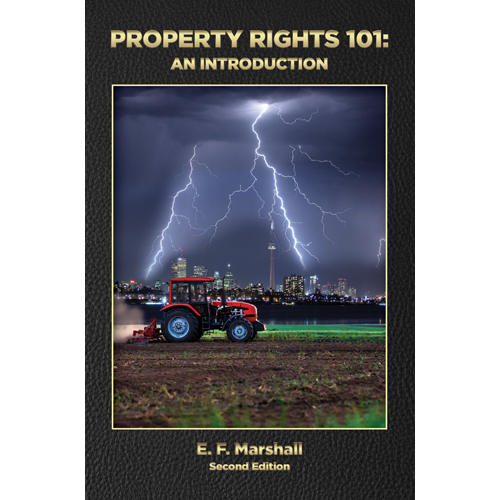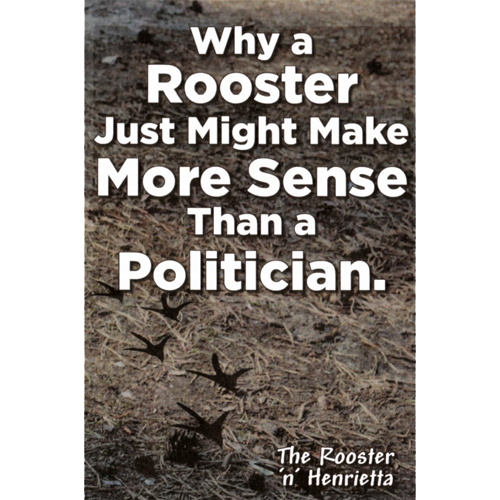Speak Now or Forever Hold Your Peace! By Shirley Dolan
- 2016-12-01
- By admin
- Posted in Latest News

Shirley Dolan
Many people will be familiar with the phrase “Speak now or forever hold your peace”, a phrase which some say originated in the Church of England at wedding ceremonies. It is meant as a last call for anyone to stop the marriage, for good cause, or keep silent. It appears that municipalities are using the same technique when it comes to public meetings about proposed bylaws and official plan amendments.
I was first made aware of this practice by Donna Burns, President of the Renfrew-Nippissing-Pembroke Landowners Association, who discovered that residents who did not attend the public consultation meetings on Renfrew’s Official Plan Amendment 25 would be unable to appeal the designations on their properties. In effect, if the resident did not attend a meeting and did not make a submission, they would not have the right to appeal.
So when the City of Ottawa started publishing the process for their Official Plan Amendment 2016, I was curious if the same technique would be used. It was! However, this requirement was not clearly spelled out to residents. Many people in rural Ottawa received a letter telling them that their land was under review for inclusion in or removal from the Agricultural Resource Area for Ottawa but it was only in the fine print, which was not mailed to all residents, that the requirement to make a submission was spelled out.
Many people do not know what an Official Plan Amendment is let alone what impact it can have on their rights to use their land. I would guess that most residents would be unaware of the need to make a submission in order to appeal a decision to designate their land in a particular way. This practice reminds me of the negative billing option used by cable companies in the 1990’s. The practice was outlawed in Canada in 1999 and in Ontario in 2005. As more people become aware of this requirement, it may have an unintended consequence: that of having residents make submissions on any number of matters “au cas où”. There must be a better way as this practice makes no sense to me. There was no mention of this requirement in the first letter sent to rural landowners. It appears that this information was only available to those who went online and signed up for updates.
If your municipality or county is in the process of doing an official plan amendment, you may want to check closely to see if the “implied consent” method of consultation is being used.
Search:
Categories
Archives
- April 2024
- January 2024
- December 2023
- November 2023
- August 2023
- July 2023
- June 2023
- May 2023
- April 2023
- March 2023
- February 2023
- January 2023
- December 2022
- November 2022
- October 2022
- September 2022
- August 2022
- July 2022
- June 2022
- May 2022
- April 2022
- March 2022
- February 2022
- January 2022
- December 2021
- November 2021
- October 2021
- September 2021
- August 2021
- July 2021
- June 2021
- May 2021
- April 2021
- March 2021
- February 2021
- January 2021
- December 2020
- November 2020
- October 2020
- September 2020
- August 2020
- July 2020
- June 2020
- May 2020
- April 2020
- March 2020
- February 2020
- January 2020
- December 2019
- November 2019
- October 2019
- September 2019
- August 2019
- July 2019
- June 2019
- May 2019
- April 2019
- March 2019
- February 2019
- January 2019
- December 2018
- November 2018
- October 2018
- September 2018
- August 2018
- July 2018
- June 2018
- May 2018
- April 2018
- March 2018
- February 2018
- January 2018
- December 2017
- November 2017
- October 2017
- September 2017
- August 2017
- July 2017
- June 2017
- May 2017
- April 2017
- March 2017
- February 2017
- January 2017
- December 2016
- November 2016
- October 2016
- September 2016
- August 2016
- July 2016
- June 2016
- May 2016
- April 2016
- March 2016
- February 2016
- January 2016
- December 2015
- November 2015
- October 2015
- September 2015
- August 2015
- July 2015
- June 2015
- May 2015
- April 2015
- March 2015
- February 2015
- January 2015
- December 2014
- November 2014
- October 2014
- September 2014
- August 2014
- July 2014
- June 2014
- May 2014
- April 2014
- March 2014
- February 2014
- January 2014
- December 2013
- November 2013
- October 2013
- September 2013
- August 2013
- June 2013
- April 2013
- October 2012
- May 2012
- September 2011



